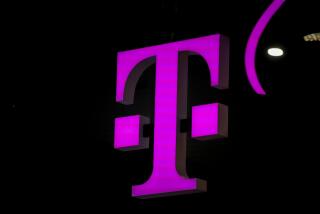FCC Widens Cellular Choice
- Share via
WASHINGTON — Federal regulators on Thursday opened the door to greater competition in the mobile phone market by allowing satellite operators to augment their offerings with traditional cellular service.
In a unanimous vote, the Federal Communications Commission ruled that mobile satellite operators could seek FCC authority to offer cell phone and wireless Internet and data services around the globe using radio frequency bands now set aside for communications satellites.
The decision could boost the prospects for satellite phone companies, which have been beset by technical and financial problems since they launched in the mid-1990s.
Satellite signals often are too weak to reach inside buildings or even to pedestrians in major cities. That frustrates the industry’s ability to reach its target market -- globe-trotting executives who want a phone that can keep them in touch anywhere.
The companies now hope to overcome the technical hurdles by building hybrid systems: Satellites would beam signals directly to customers in sparsely populated rural areas that are easy to serve by satellite. But in more congested urban areas, operators would beam transmissions from satellites to an intermediate radio tower powerful enough to reach customers through buildings.
“There’s no question that [satellite operators] are rejoicing now with the ability to offer both satellite and terrestrial service,” said Michael Alpert, a satellite expert who heads his own Washington consulting firm. “It will help them provide a mobile service that is cost-effective for their customers.”
But the decision triggered outrage in the cell phone industry, whose chief lobbyist said he would seek a reconsideration of the ruling. “The FCC’s decision to give failing satellite companies new technical rights is a gigantic giveaway that will cost taxpayers billions of dollars,” said Thomas Wheeler, president of the Cellular Telecommunications and Internet Assn.
To blunt some of that criticism, the FCC also set aside 30 megahertz of satellite spectrum for use by cellular phone providers, who have been lobbying the commission for additional spectrum to alleviate calling congestion and dropped calls.
FCC Chairman Michael K. Powell said the moves “will allow for more efficient utilization of the spectral resource ... and more diverse and competitive alternatives for consumers.”


